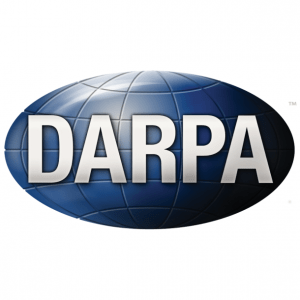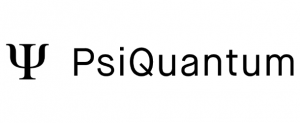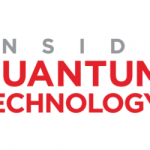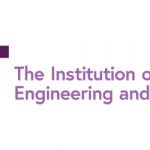Quantum News Briefs March 13: DARPA seeks input to advance hybrid quantum/classical computers; Mynaric selected by German government for multiple projects to develop quantum communication capabilities; PsiQuantum opens UK-based research facility to develop next-generation high-power cryogenic systems for large-scale quantum computing + MORE

Quantum News Briefs March 13: DARPA seeks input to advance hybrid quantum/classical computers; Mynaric selected by German government for multiple projects to develop quantum communication capabilities; PsiQuantum opens UK-based research facility to develop next-generation high-power cryogenic systems for large-scale quantum computing + MORE
DARPA seeks input to advance hybrid quantum/classical computers
DARPA is sponsoring a live webinar on Tuesday, April 11, 2023, to highlight an Advanced Research Concept (ARC) topic called Imagining Practical Applications for a Quantum Tomorrow (IMPAQT). Registrants will have the opportunity to hear from government experts, university professors, and industry-leading quantum hardware providers as well as participate in live question-and-answer sessions.
“We’re billing the webinar as a help day for quantum algorithmists,” said DARPA Innovation Fellow Alex Place, who is leading the event. “Building on successes of DARPA’s ONISQ (Optimization with Noisy Intermediate-Scale Quantum devices) program, the webinar’s goal is to spark innovative ideas and discuss new concepts for making near-term intermediate scale quantum computers, as well as sought-after fault tolerant processors, practical and useful for solving real problems. We’re encouraging teams from academia and industry who have expertise in quantum algorithms or a practical problem that could be mapped to a quantum processor to engage with IMPAQT.”
For more technical details, view the IMPAQT Webinar special notice at this webpage.
Registration closes Friday, April 7, 2023 at 12:00 PM EDT. Click here to register.
IMPAQT is the first of many anticipated DARPA ARC topics. The ARC initiative is designed to speed the pace of innovation by rapidly exploring and analyzing a high volume of promising new ideas. For more information about ARC, to view the open IMPAQT solicitation, and to see new topics as they become available, visit www.darpa.mil/arc.
The ARC tpics are managed by DARPA’s innovation fellows, who include recent Ph.D. graduates (within five years of receiving a doctorate) and active-duty military with STEM degrees. To learn more about the DARPA Innovation Fellowship, current fellows, and how you can apply to become a fellow visit: www.darpa.mil/innovationfellowship.
Mynaric selected by German government for multiple projects to develop quantum communication capabilities
 Mynaric (NASDAQ:MYNA)(FRA:M0YN), a leading provider of industrialized, cost-effective and scalable laser communications products, today announced that it has been selected for three technology development projects related to quantum communication. The projects are part of the second phase of the QuNET initiative funded by Germany’s Federal Ministry of Education and Research (BMBF). Mynaric’s technology development will be co-funded with a total amount of up to 5.6 million Euros between 2023 and 2025.
Mynaric (NASDAQ:MYNA)(FRA:M0YN), a leading provider of industrialized, cost-effective and scalable laser communications products, today announced that it has been selected for three technology development projects related to quantum communication. The projects are part of the second phase of the QuNET initiative funded by Germany’s Federal Ministry of Education and Research (BMBF). Mynaric’s technology development will be co-funded with a total amount of up to 5.6 million Euros between 2023 and 2025.
Mynaric’s work as part of the projects will be performed entirely in Germany and include:
Development of a scalable optical ground station prototype capable of receiving quantum keys from ultra-secure satellite-based networks in space
Demonstration of an optical communications terminal for airborne high-altitude platforms that can exchange quantum keys through air-to-air and air-to-ground links
Exploration of compact optical technologies to enable quantum key and laser communication for fixed and mobile network nodes
“Mynaric has always been pushing the boundaries of laser communications technology and these projects are a continuation of that streak,” said Joachim Horwath, CTO & Founder of Mynaric. “Quantum communication allows levels of cyber-security needed to confront future threats on data integrity and security. Optical communications terminals are a basic building block needed to realize quantum networks across large distances and in mobile scenarios.”
The project selections represent another important win for Mynaric in the European government ecosystem after its selection by the European Space Agency (ESA) to investigate optical technologies for next generation high-throughput optical inter-satellite links and demonstrates Mynaric’s continued position as an industry innovator. The European government market is set to gain greater relevance for Mynaric following the European Parliament’s overwhelming adoption to establish the IRIS² European satellite constellation on February 15. The multi-orbital constellation of potentially hundreds of satellites is expected among a host of innovative technologies to include quantum encryption capabilities for secure communication and to include emerging European space companies in building the system that is scheduled to commence initial services by 2025 and achieve full operational capacity by 2027.
Click here to read announceent in-entirety.
PsiQuantum opens UK-based research facility to develop next-generation high-power cryogenic systems for large-scale quantum computing

PsiQuantum recently announced the opening of its UK-based advanced R&D facility at STFC’s Daresbury Laboratory in the north west of England. This effort is backed by £9M of funding from the UK government’s Department for Science, Innovation and Technology (DSIT), and gives PsiQuantum access to one of Europe’s largest liquid-helium (approx. -270°C) cryogenic plants.
PsiQuantum has teamed up with STFC’s Daresbury Laboratory to develop the next generation of high-power cryogenic modules which will be necessary to scale photonic quantum computers to millions of qubits. PsiQuantum will work with Daresbury Laboratory experts specialized in large-scale cryogenic infrastructure to develop advanced cryogenic systems.
This partnership will deliver quantum computing subsystems with the highest cryogenic cooling power deployed to date, representing a major step towards large-scale quantum computers capable of solving commercially relevant problems.
PsiQuantum is building an error-corrected quantum computer which harnesses the quantum mechanical properties of single particles of light (photons). Like all leading quantum computing efforts, this requires cryogenic cooling but the advantage of a photonic approach is that the cooling requirements are far less demanding. PsiQuantum’s approach requires cryogenic cooling to operate extremely sensitive single-photon detectors, which are used to read the state of the photonic qubit.
These devices operate at temperatures just a few degrees above absolute zero – equivalent to the temperature of deep space. Although cold, the operating temperature is hundreds of times hotter than the milli-Kelvin temperatures required by many other quantum computing technologies, thus circumventing the unprecedented challenge of developing large-scale milli-Kelvin dilution refrigeration. Click here to read complete March 6 news announcement.
QuantWare closes €6 million Seed Round led by Forward.One, with QDNL Participations and Graduate Entrepreneur
 QuantWare, the leading provider of large-scale superconducting quantum processors, announced on March 9 a €6 million Seed Round led by Forward.One, with QDNL Participations and Graduate Entrepreneur also playing a significant role in the round. Quantum News Briefs summarizes the announcement.
QuantWare, the leading provider of large-scale superconducting quantum processors, announced on March 9 a €6 million Seed Round led by Forward.One, with QDNL Participations and Graduate Entrepreneur also playing a significant role in the round. Quantum News Briefs summarizes the announcement.
QuantWare will use the funding to scale its team to support the production and development of its new 64 qubit processor ‘Tenor’. The device provides more than twice the number of qubits compared to its previous largest QPU at a 10x lower price point than competing solutions and opens the door to quantum processors with thousands of qubits.
QuantWare’s aim is to become the ‘Intel of quantum computing’ by providing easy-to-use, increasingly powerful and affordable quantum processors to organisations across the world. Last year, QuantWare was selected to deliver quantum processing units for Israel’s first fully functional quantum computer.
QuantWare has developed a patented 3D technology that routes the connections vertically, making it possible to scale superconducting quantum processors to thousands of qubits – opening the door to ‘quantum advantage’ where quantum computers will overtake the most powerful classical computer. Tenor marks a significant advance in commercial quantum computing because it is the first device commercially available that features this technology.
Matthijs Rijlaarsdam, CEO of QuantWare, said: “We believe that one of the key ways to supercharge development of the quantum computing sector is to provide the technology to enable companies to significantly scale their solutions at much lower costs. This is what Tenor enables, and with this funding we will be able to ramp up production and continue development of even more powerful processors.”
Paul Pruijmboom, Partner at FORWARD.one Venture Capital for Hardware, said: “We are proud to have been one of the first investors to see QuantWare’s potential in 2021. . . “. ” Click here to read announcement in-entirety on the Quantware site.
Sandra K. Helsel, Ph.D. has been researching and reporting on frontier technologies since 1990. She has her Ph.D. from the University of Arizona.





















